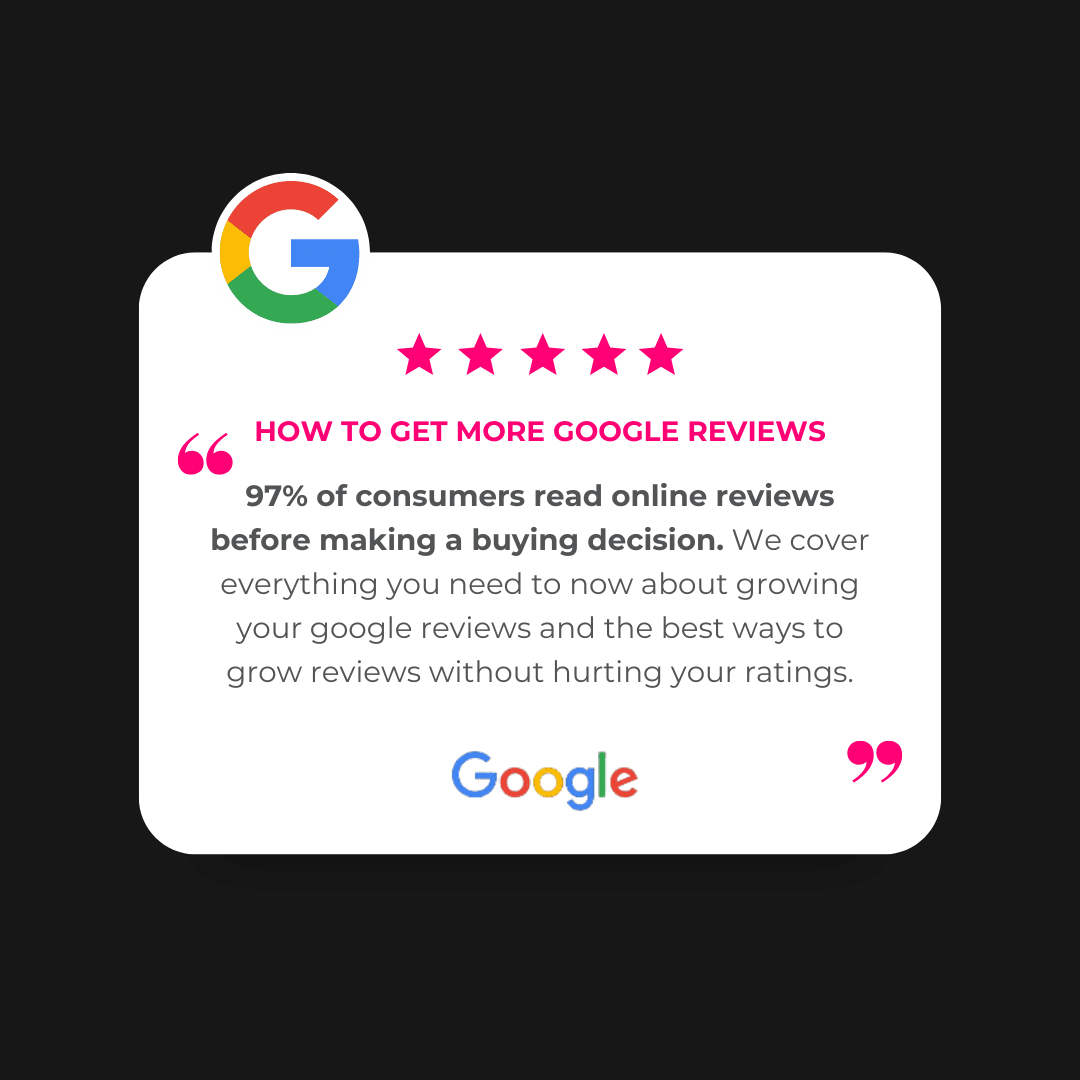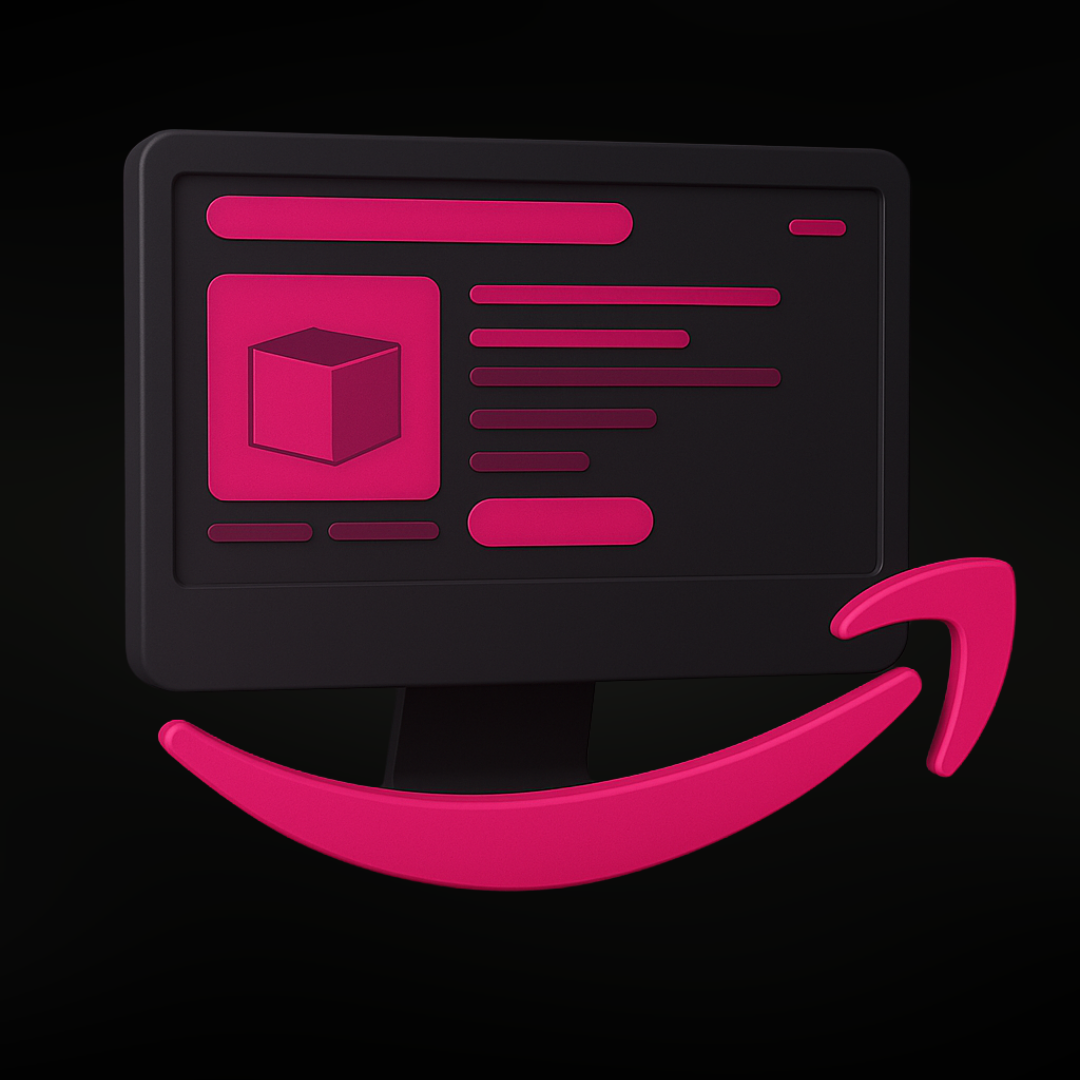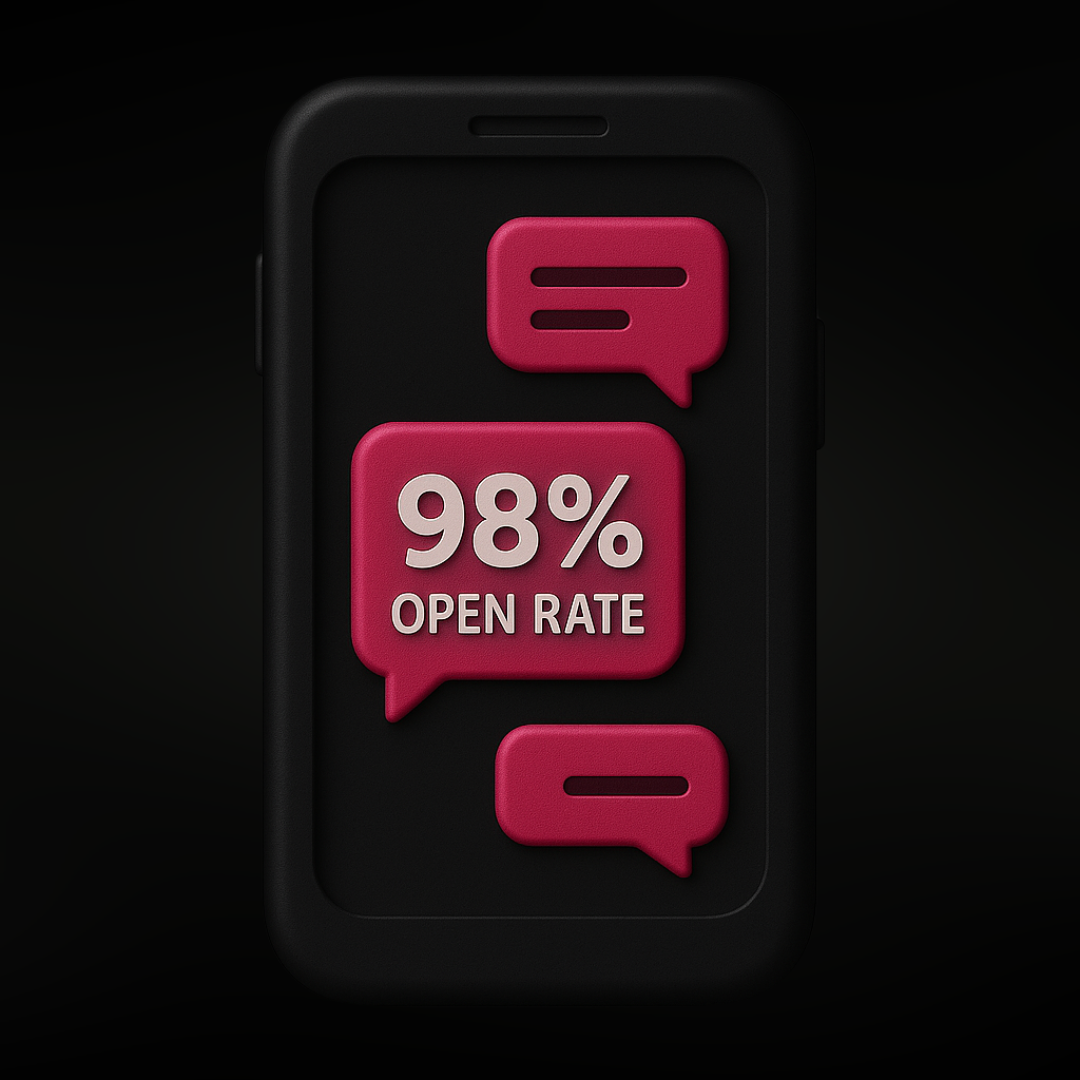Google reviews are the secret weapon every business needs to dominate local search results, crush the competition, and solidify their brand authority. If you're not actively collecting reviews, you're leaving serious growth and conversions on the table. This guide will break down exactly how to get more Google reviews, optimize your process with the right tools, and leverage your hard-earned feedback to grow your business. Let’s get into it.
What is a Google Review?
A Google review is a customer’s public feedback about your business, displayed directly on your Google Business Profile. It includes a star rating (1 to 5 stars) and a written comment. These reviews show up in Google searches, Google Maps, and local business listings, making them powerful social proof for your business.
Why Are Google Reviews Important?
If you want to dominate your competition and make your brand stand out online, Google reviews are your best ally, over 40% of local traffic use Google Maps to search with terms like "near me" so it helps you capture literally almost half of the searches in your area. Here’s why Google Reviews matter so much:
-
Rank Higher on Local Listings: Google loves businesses with strong, authentic reviews. More positive reviews boost your chances of appearing in the “Google 3-Pack” – the top three businesses shown in local search results. More visibility means more customers.
-
Improve Brand Authority: Trust is the foundation of sales. High-quality reviews build credibility and position your business as the go-to choice in your industry. They signal to potential customers that you’re reliable and worth their time.
-
Crush Conversion Rates: Consumers trust peer reviews more than brand promises. The more reviews you have, the more confidence people have in buying from you.
How Many Google Reviews Do You Need?
Wondering how many reviews are enough? Here’s the reality:
-
15 Reviews: This is the baseline for most integrations and basic credibility. Anything less, and you’re barely on the map.
-
50+ Reviews: This is the benchmark you need to be trusted online in your industry. At this level, your business stands out and becomes nightmare fuel for your competitors. The more reviews you have, the more weight Google gives you.
- More Than Your Competitors: Online the key to winning is literally standing out from the crowd, if you have a 5-star rating and your competitor has a 4.5-star rating you are already in good stead but volume matters too. Although having the most isn't the only metric you need to watch out for most people including Google will trust a business with hundreds of reviews and a lower star rating than a business with a handful of 5-star Google Reviews.
What Makes a Google Review Power-Packed for Credibility and Rankings
Not all Google reviews are created equal. If you want to stand out from the crowd and move your business listings up the page, it’s crucial to understand what goes into a high-quality Google review. The right kind of review doesn’t just boost credibility – it sends all the right signals to Google, pushing your business to the top of local search results. Here’s the formula for a Google review that drives real results.
1. Detailed and Specific Feedback
Why It Matters: Vague reviews like “Great service!” or “Awesome!” don’t add much value to potential customers or Google’s ranking algorithms. Reviews that describe specific details about the customer experience are more credible and helpful.
What to Encourage:
- Mentioning specific services, products, or team members.
- Highlighting unique aspects of the experience (e.g., quick response times or going above and beyond to solve an issue).
Example: “The team at XYZ Plumbing fixed our leaking pipes within 2 hours. They explained everything clearly and left our home spotless. Highly recommend for fast, professional service.”
2. Keywords Relevant to Your Business
Why It Matters: Google’s algorithm scans reviews for keywords that match search queries. The right keywords can improve your business’s relevance for local searches.
What to Encourage:
- Including keywords related to your industry, services, or products (e.g., digital marketing agency, plumber in Melbourne, or custom web design).
- Location-specific terms if applicable (e.g., best coffee in Sydney).
Example: “We hired Signature Strategy's Digital Marketing Agency for SEO services, and our Brisbane based business saw a 50% increase in online traffic within 3 months.”
3. Star Ratings That Reflect Genuine Satisfaction
Why It Matters: The more 5-star reviews you have, the stronger your overall rating. But Google also values authenticity, so a mix of ratings can still build credibility.
What to Encourage:
- Customers who had an excellent experience to leave 5-star reviews.
- Honest ratings that accurately reflect their experience.
Tip: Use conditional logic forms to route 5-star reviews directly to Google, while lower ratings go to internal feedback forms for improvement. This is perfect for businesses that have had trouble with low reviews in the past, being spammed or if you are just worried in general about the chances of someone leaving a poor review. It also gives you a chance to imrpove customer service and create outstanding outcomes for your clients or customers.
4. Photos and Videos
Why It Matters: Visual content boosts credibility and makes reviews more engaging. Google gives higher weight to reviews with photos or videos.
What to Encourage:
- Customers to add photos or short videos showcasing your products, services, or results.
- Visuals that highlight before-and-after outcomes or the quality of your service.
Example: A photo of a completed home renovation, a beautifully plated dish, or a screenshot showing improved metrics.
5. Timeliness of Reviews
Why It Matters: Fresh reviews show Google that your business is actively engaging customers and delivering value. Recent feedback is more relevant to potential customers.
What to Encourage:
- Asking for reviews immediately after a successful transaction or service.
- Keeping a steady flow of reviews over time.
Tip: Use automated post-purchase emails or SMS reminders to ensure you consistently collect reviews.
6. Length of Review
Why It Matters: Longer reviews that go into detail are more trustworthy and carry more weight with Google.
What to Encourage:
- Reviews that are at least 2-3 sentences long.
- Detailed explanations of what made the experience positive.
Example: “We ordered a custom-made sofa from ABC Furniture, and we couldn’t be happier. The team walked us through the design process, delivered ahead of schedule, and the quality is outstanding. Highly recommend for anyone looking for bespoke furniture.”
7. Responding to Reviews
Why It Matters: Google values businesses that actively engage with their customers. Responding to reviews (both positive and negative) demonstrates customer care and boosts credibility.
What to Do:
- Thank customers for positive reviews.
- Address concerns professionally in negative reviews.
- Use responses to add keywords and reinforce your services.
Example: “Thank you for the great feedback on our digital marketing services. We’re thrilled to hear your business saw such rapid growth. Looking forward to helping you continue to stand out from the crowd!”
Best Apps to Grow Local Google Reviews
Automating your review collection process is the smart way to grow your brand authority. Here are some of the best tools to help you collect and display reviews seamlessly:
-
Trustindex
- Features: Integrates directly with your website to display Google reviews in widgets, sliders, and carousels.
-
Why You Need It: Automates the process of importing and showcasing reviews, making your social proof impossible to ignore.
-
Trustmary
- Features: Helps you collect and display reviews, testimonials, and video feedback.
-
Why You Need It: Perfect for creating high-impact testimonial pages that drive conversions.
-
Grade.us
- Features: Automates review collection, reminders, and responses.
-
Why You Need It: Ideal for agencies or multi-location businesses needing advanced review management.
-
Podium
- Features: Text-based review requests and customer interaction tools.
- Why You Need It: Increases review responses by meeting customers where they are – their phones.
Growing Google Reviews for Your Shopify Store
If you’re in eCommerce, product reviews are your lifeblood. Here are the top tools to boost Google reviews for your Shopify store:
-
Judge.me
- Features: Collects product reviews and displays them in visually appealing widgets. Integrates with Google Shopping for more visibility.
-
Why You Need It: Affordable, powerful, and optimized for conversions.
-
Loox
- Features: Photo-based product reviews and referrals.
-
Why You Need It: Builds trust through visual reviews, making your products irresistible.
-
Stamped.io
- Features: Advanced review collection, Q&A, and loyalty programs.
- Why You Need It: Perfect for brands looking for comprehensive review and loyalty solutions.
Leverage Email Marketing & Post-Purchase Flows
To maximize your reviews, integrate email marketing flows using tools like Klaviyo or ActiveCampaign. Here’s how:
-
Post-Purchase Emails:
- Send automated emails thanking customers and asking for a review. Include a direct link to your Google review page.
- Send automated emails thanking customers and asking for a review. Include a direct link to your Google review page.
-
Follow-Up Reminders:
- If they don’t respond, send a polite reminder after 7 days. Persistence pays off.
- If they don’t respond, send a polite reminder after 7 days. Persistence pays off.
-
Conditional Logic Forms:
- Use forms that ask customers to rate their experience.
- 5 Stars? Automatically redirect them to leave a Google review.
- Less than 5 Stars? Route them to an internal feedback form to address issues privately. This strategy maintains your reputation while gathering valuable insights.
Manual Outreach vs. Paid Apps: Choosing What Works for Your Business
When it comes to collecting Google reviews, you’ve got two main paths – manual outreach or using paid apps. Both strategies have their strengths. The key is knowing which one aligns with your business’s resources, technical skills, and growth goals.
Manual Outreach
Benefits:
- Cost-Effective: No additional expenses if you manage it yourself.
- Personalized Touch: You can tailor each request to your customer, which can lead to stronger relationships.
Drawbacks:
- Time-Intensive: Requires consistent effort, which can be difficult as your business scales.
- Inconsistent Results: Without a structured process, it’s easy for review collection to get neglected.
Best For: Businesses with limited budgets that can invest time in building genuine relationships with their customers.
Paid Apps
Benefits:
- Automated Efficiency: Set it up once and let the app handle the heavy lifting.
- Scalability: Easily manage reviews as your business grows.
- Boosted Brand Authority: More consistent reviews can help you rank higher and dominate search results.
Drawbacks:
- Cost Considerations: Requires an investment, but one that often pays off in increased conversions and credibility.
Best For: Businesses looking to scale quickly, optimize their processes, and maintain a steady stream of reviews without draining time and energy.
The Bottom Line
Both manual outreach and paid apps are powerful review-collection methods. If you value a hands-on approach and have the time to personalize outreach, go manual. If efficiency, automation, and scalability are priorities, paid apps are the way to go.
Evaluate your budget, tech skills, and growth ambitions to make the best call for your business. The goal is the same – more Google reviews, stronger authority, and a brand that makes your brand trusted in the eyes of the search engine's that put you infront of people and increase your conversions with the 97% of people who care about using a business they can trust.






Share:
The Ultimate Guide to Creating the Perfect Logo: Styles, Formats, and Tips
How to Get More Traffic to Your Website